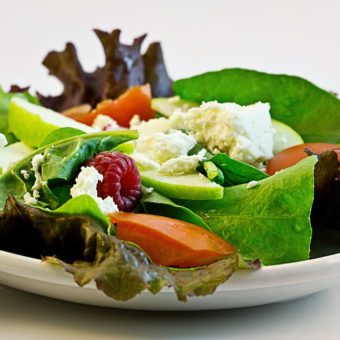
Foods to Consider and Foods to Avoid When Planning Your Pcos Diet Chart and Menu
The shortened way of writing of Polycystic Ovary Syndrome which is also referred to as Stein-Leventhal Syndrome is PCOS.
It is important to understand exactly what Polycystic Ovary Syndrome is prior to going over the crucial foods that should be consumed in a Pcos diet chart and menu.
This disorder is one of the most common of all hormonal endocrine disorders women may face one out of every ten women during their childbearing years will be affected by Polycystic Ovary Syndrome.
The symptoms associated with Polycystic Ovary Syndrome can vary between women and a single test alone is not able to easily diagnose Polycystic Ovary Syndrome.
It is however very important to catch and diagnose Polycystic Ovary Syndrome early on being as the risk of health issues and other chronic medical conditions such as Type 2 Diabetes, high cholesterol levels, insulin resistance, hypertension and even heart disorders and diseases are greatly increased.
Some of the most common symptoms associated with Polycystic Ovary Syndrome are weight gain and obesity.
With this particular condition a pattern which is similar to a string of pearls is formed by several cysts in the ovaries.
Women suffering from Polycystic Ovary Syndrome may also have irregularly high levels of testosterone causing symptoms such as male pattern baldness, excessive hair growth and acne.
Due to the fact that the testosterone prevents the release of a monthly egg by the ovaries, many women with Polycystic Ovary Syndrome also have irregular menstrual cycles.
One of the leading causes of infertility among women is in fact Polycystic Ovary Syndrome an it accounts for seventy percent of all other infertility problems.
The best way to keep the Polycystic Ovary Syndrome under control and overcome the obesity is through a Low GI weight loss diet which is well planned and of course regular physical activity and exercise.
What is the PCOS Diet?
Being as Polycystic Ovary Syndrome is a hormonal disorder common among women which is primarily caused due to endocrine dysfunction or an insulin resistance.
Uncontrolled weight gain is unfortunately one of the most common side effects associated with Polycystic Ovary Syndrome.
That being said, a basic “low-fat” diet will not suffice, as a result of the high insulin levels which promote the storage of fat throughout the body.
Women with Polycystic Ovary Syndrome are not able to lose weight on a regular diet.
A specialized Low GI Diet is required to treat Polycystic ovaries and manage weight, the diet includes special food combinations which do not promote a fast rise in the glucose levels of the blood.
Pcos Diet Chart
 Following is a list of healthy Polycystic Ovary Syndrome foods which should be added to your daily diet as way of managing your condition as well as effectively preventing weight gain and managing weight loss,
Following is a list of healthy Polycystic Ovary Syndrome foods which should be added to your daily diet as way of managing your condition as well as effectively preventing weight gain and managing weight loss,
Remember that, this is one of the symptoms associated with Polycystic Ovary Syndrome that is most recognizable.
Here are six important food groups to include in your pcos diet chart (Polycystic Ovary Syndrome menu.)
1. Colored Vegetables
Some of the healthiest colored vegetables are sweet potatoes, carrots, yellow and red bell peppers, tomatoes, eggplant, etc.
Not only are these vegetables that perfect ingredients for a delicious and beautiful salad, they are also packed full of very powerful antioxidants.
Women suffering from Polycystic Ovary Syndrome suffer from the harmful effects of oxidative stress, these powerful antioxidants help to neutralize these effects.
2. Green Leafy Vegetables
It is a fact that eating vegetables and fruits as a way to lose weight is quite effective, it also is beneficial in naturally controlling the Polycystic Ovary Syndrome.
In comparison with other foods, leafy green vegetables contain the most amount of nutrients per calories.
They are also very rich in iron, magnesium, calcium, potassium as well as vitamin K, vitamin C and vitamin E.
The most important component however is the B vitamins they contain, primarily vitamins B2, B3, B5 as well as B6.
These all help to better that fat and sugar metabolism as well as better the functioning of the thyroid.
Therefore providing a healthier hormone balance and improves your fertility, this are all crucial to the management of Polycystic Ovary Syndrome.
The acidity which is caused due to impaired glucose tolerance as well as inflammation is neutralized by the minerals offered by green leafy vegetables.
The calcium in the vegetables helps with follicle development in the ovaries and also with the maturation of the egg.
An absolute must for Follicle Stimulation Hormone (FSH) production is potassium which we know they contain in volumes.
PMS symptoms are reduced as well as weight loss promoted.
3. Fruits

A very important food component in the Polycystic Ovary Syndrome diet is fruits.
Due to the fructose content, most women suffering from Polycystic Ovary Syndrome are a bit hesitant to include fruits in their menu.
They are concerned that a sudden spike in blood sugar levels could be caused and consequently the levels of insulin are also affected.
That is understandable, however fruits are high in vitamins, fibers, phytonutrients and minerals, they should not be completely avoided.
Fruits which have low levels of GI such as strawberries, grapefruits, cantaloupe, pear, watermelon, nectarines, kiwis, lime, apricot, lemon, guava, oranges, blueberries and apples are all great choices.
A protein boost that will help to keep the sudden sugar spike which fruits could cause under control would be to add a bit of seeds or nuts to your fruit servings.
4. Organic Meat
Due to the fact that one of the biggest symptoms related to Polycystic Ovary Syndrome is weight gain, including lean proteins in your Pcos diet chart to lose weight is very important, this will help you to better control your body weight.
One of the most powerful and all natural sources of protein is meat so make sure that you get plenty of it.
It is best to opt for organic lean cuts, those that contain less pesticides and hormones and have not been genetically altered.
5. Healthy Fats
Despite what some may believe, not every type of fat can be harmful and unhealthy for women with Polycystic Ovary Syndrome to consume.
It is indispensable to have a certain amount of essential fatty acid and healthy fats to remove toxins from the body, maintain the cells, manage weight and promote a healthy hormonal balance.
Healthy fats are also very important component to the pcos fertility diet.
You can find healthy fats in nuts, seeds, olive oil avocado as well as oily fishes such as salmon and tuna.
Olive oil is beneficial not only for the skin but for the overall health of our bodies and oily fishes are very important as well.
Certain issues related to Polycystic Ovary Syndrome can be relieved with the help of the healthy fats and vitamin D the salmon contains, vitamin D and B vitamins that are found in tuna are crucial for women with pcos.
6. Carbohydrates Which are Low in the Glycemic Index
Having Polycystic Ovary Syndrome does not mean you have to cut out all carbohydrates, you simply have to be careful with the carbohydrates you choose.
 There are carbohydrates with high Glycemic Index such as white breads, white rice breakfast cereals,
There are carbohydrates with high Glycemic Index such as white breads, white rice breakfast cereals,
white bagels etc that will quickly increases your blood sugar levels.
This means that the insulin release from the pancreas will also increases as a way of using the glucose as energy.
However having high levels of insulin in your body will eventually lead to an insulin resistance as well as weight gain and obesity.
This is much worse with women suffering from Polycystic Ovary Syndrome.
This is why choosing healthy carbohydrates which have low Glycemic Index and are not as quick to break down and digest such as lentils, most legumes, beans and non starchy vegetables is highly recommended.
This means that the release of blood glucose in the body will be slow and consistent.
Another benefit of low GI foods is that you will feel satisfied longer, this prevents unwanted cravings.
What Food Groups Should Be Avoided?
Here are seven food groups to avoid if you suffer from Polycystic Ovary Syndrome.
Not including these food groups in your Pcos diet chart is due to the effect that can have on the body’s insulin levels and worsen your symptoms:
1. Dairy Products
A balanced diet chart does call for a certain amount of dairy products as well as milk, however if you suffer from Polycystic Ovary Syndrome they could be harmful.
This otherwise healthy food is on the list of food to avoid consuming if dealing with Polycystic Ovary Syndrome .
Testosterone levels can be increased with the consumption of milk, there is also a certain protein found in milk which limit the body’s regular processing of testosterone.
This means the levels of testosterone will have no barrier and continue to rise worsening your Polycystic Ovary Syndrome.
Avoid consuming cheese, butter, yogurt, milk and other milk products.
2. Unhealthy Fats
Unhealthy fats such as hydrogenated fats, saturated fats and trans fats should be  avoided to prevent the worsening of your Polycystic Ovary Syndrome.
avoided to prevent the worsening of your Polycystic Ovary Syndrome.
You can find hydrogenated and trans fats in processed food, cooking oil and margarine.
These increase the risk of diabetes mellitus and heart disease in women dealing with Polycystic Ovary Syndrome.
You can find saturated fats in dairy products as well as fatty cuts of meat, oestrogen which affects the absorption of various nutrients in the body.
Which can cause weight gain is increased in production by consuming these foods.
3. Alcohol
There is an almost fifty percent increase in the risk of Polycystic Ovary Syndrome in women who drink alcohol as opposed to those who do not.
Being as the organ responsible for eliminating excess levels of oestrogen from the body is the liver, drinking alcohol regularly increases the pressure placed on the liver.
Getting rid of the alcohol in the body becomes its main goal and oestrogen removal is no longer the priority, this causes the body to contain an oestrogen dominant environment.
On top of that, once in the body, alcohol is turned into sugar contributing to insulin resistance and impairing glucose tolerance.
Alcohol also creates acidity, this makes information much worse and causes more problems for those struggling with Polycystic Ovary Syndrome as well as Type 2 Diabetes.
4. Caffeine
It is a known fact that too much coffee, meaning four cups or more a day can have a negative effect on a woman’s fertility,
A woman’s fertility is already greatly affected by Polycystic Ovary Syndrome, consuming coffee can only worsen the situation.
The levels of estradiol which is a form of oestrogen which affects ovulation as well as the menstrual cycle are increased with the daily consumption of coffee.
5. Processed Foods
Processed food have a very negative impact on Polycystic Ovary Syndrome.
Processed foods contain high levels of chemicals, preservatives, additives and flavors all of which increases the release of prostaglandins hormone.
This will cause inflammation leading to increases levels of insulin in the body.
It is best to stick with whole foods that maintain their natural form. Use pcos diet chart
6. High Glycemic Index Foods
As discussed earlier, it is best to stick with low GI foods that do not promote a sudden rise in blood sugar levels .
which can increases the release of insulin in the body working to regulate the amount of glucose being released into your bloodstream.
They may be yummy and feel good to eat, however the high calorie content and lack of nutrients make them very unhealthy.
Many of the foods we eat on a daily basis are high in GI.
Food such as cakes, pies, white pasta, most breakfast cereals, soda, flavored yogurts, fruit juices, biscuits, white bread, rolls, white rice, dried fruits, candy, packaged soups, etc.
A diet that is full of unhealthy carbohydrates and sugars not only affect your levels of insulin, they also disrupt proper ovulation and are directly linked to Polycystic Ovary Syndrome.
7. Soy Products

Last but not least on this list is soy products which those who are lactose intolerant or prefer to avoid dairy products choose to consume.
This is not something that is an option when it comes to pcos.
Delayed ovulation has been directly linked to soy products and this can only worsen a condition such as Polycystic Ovary Syndrome.
People suffering from pcos should completely avoid soy products especially when taking on the pcos pregnancy diet hoping to conceive.
Hopefully you are now able to better understand what pcos diet chart is and as well as what foods you should include in your diet.
And which ones should be greatly avoided in order to properly manage Polycystic Ovary Syndrome, control any weight gain.
Promote weight loss and a better hormonal balance.
Take your time to make a clear plan and a PCOS diet chart and menu, this will help you be much healthier and happier.
Please continue here for more additional information
